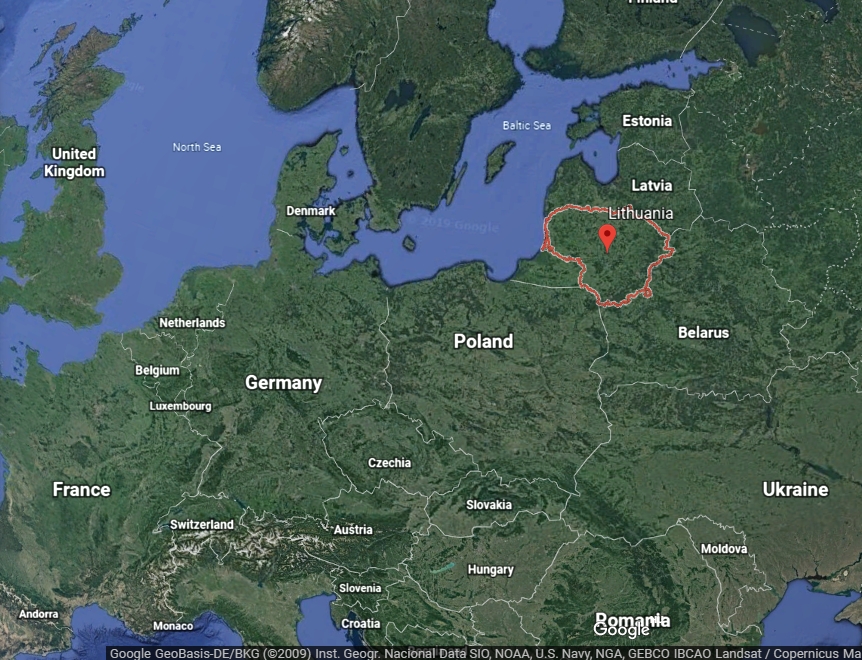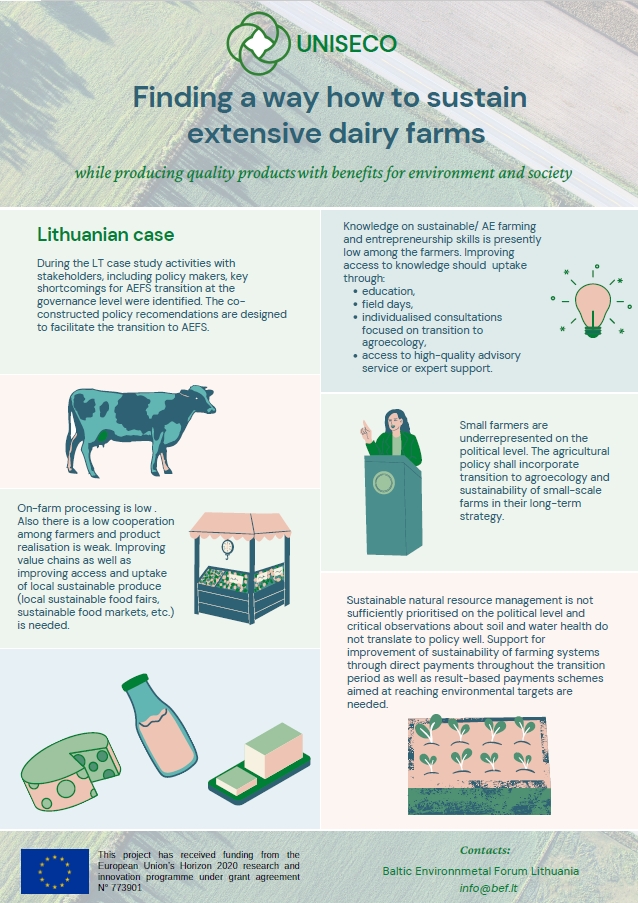Case study dilemma and research questions
Preserve extensive farming practice (extensive management of permanent grassland habitats including ecologically valuable ones) by increasing the market competitiveness (improving value chain) of extensive small-scale dairy farms.
Key Dilemma
- How to maintain and encourage extensive management (grazing) of grassland habitats?
- How to become (or remain) competitive in the market without intensifying the farming practice and increasing the farm in size?
Key research questions
- How to maintain and encourage extensive grassland management (grazing) practices in dairy farm?
- How to realise the benefit of remaining small scale and extensive farmer vs. intensifying.
- How to encourage extensive (mostly small scale) farmers to transition towards agro-ecological practices?
- How to improve the extent of on-farm processing and develop variety of products?
- How to show the value of on-farm produced goods in the local market and increase the demand of these products?
- What is the level of sustainability of conventional dairy farmers vs extensive small scale farms?
Key characteristics and sustainability issues of the farming system
Dairy sector in Lithuania comprises of raw dairy producers, middle-men that collect milk from producers (around 60 companies) and over 20 dairy processing companies with 5 of them accounting for around 95% of production.
To show tendencies of the Lithuanian milk sector, it is worth noting that number of farms has sharply declined from ~165 thousand in 2005 to ~25 thousand in 2017 while the average farm size has increased from 2,7 cows in 2005 to approximately 9 cows per farm as of 2018. This decline represents small farms mainly. Since 1995 the number of milk cows in the country has decreased by around 2,5 times. And as of 2017 it is around 250 thousand. The effectiveness, i.e. the amount of milk from a single cow has been increasing as the average farm size increased, but the amount of milk produced per citizen has been slightly decreasing. Now only 5% of dairy farmers keep slightly above 50% of all cows and account for 70% raw milk production. The increasing of the farm size has its typical associated drawbacks related to intensification and ecological pressures as well as changing farming practices from grazing to growing fodder for cattle kept indoors in larger farms.
Milk producers that are of major interest to the investigation not only produce raw dairy but also further production, namely cheese or other products and are involved in direct selling their own produce. This group is chosen as a good example of improving value chain. In these farms, not only cows are kept for dairy production but also sheep, goats. The artisan cheese products are becoming more and more popular in the market. Besides growth of the direct selling market, there is a possibility to grow the market by selling these products in restaurants and street food producers. However, some of them find that it is not always easy to find customers since the product availability is poor, meaning that farmers who keep, take care of and milk the animals themselves and produce cheeses afterwards are available to customers in the markets only once a week for example. This shows a need for a joint cooperative or other means of improving product availability but not decreasing the profit for farmers. Lastly, customers not always understand the real value of the products, for example that purchasing this or that cheese supports the ecosystem of a natural meadow indirectly.
Key actors involved
- Farmers
- Ministry of Agriculture
- Lithuanian Association of Organic Farms
- Lithuanian Institute of Agrarian Economics
- Lithuanian Agriculture Advisory Service
- Association VivaSol (our SRG and case study champion)
- Ministry of Environment
- Vytautas Magnus University Agriculture Academy
- Institute of Animal Science of LUHS
- National Food and Veterinary Service
- Association of Small Cheesemakers
- Chamber of Agriculture
Downloads
- UNISECO H2020 issue brief: Improving accessibility to agroecological farming knowledge and practical skills of Lithuanian farmers to support the transition to agroecology
- UNISECO H2020 policy brief: Small family dairy farms - from status quo to agroecological farming systems?
- UNISECO H2020 Problematikos santrauka: Agroekologinio ūkininkavimo žinių ir praktinių įgūdžių prieigos gerinimas Lietuvos ūkininkams siekiant sustiprinti perėjimą prie agroekologinio žemės ūkio
- UNISECO H2020 Politikos santrauka: Smulkių pieno ūkių ateitis – agroekologinių ūkininkavimo sistemų link?
- Finding a way how to sustain extensivev dairy farms - poster (in EN)
Video
Related newsitems
https://uniseco-project.eu/news/82/a-discussion-about-application-of-agro-ecological-practices-in-lithuania
https://uniseco-project.eu/news/65/lt-case-study-workshop-sustainable-food-security-resilient-and-resource-efficient-value-chains
https://uniseco-project.eu/news/43/lithuanian-case-study

SMALL SCALE DAIRY FARMERS AND CHEESEMAKERS IN LITHUANIA


